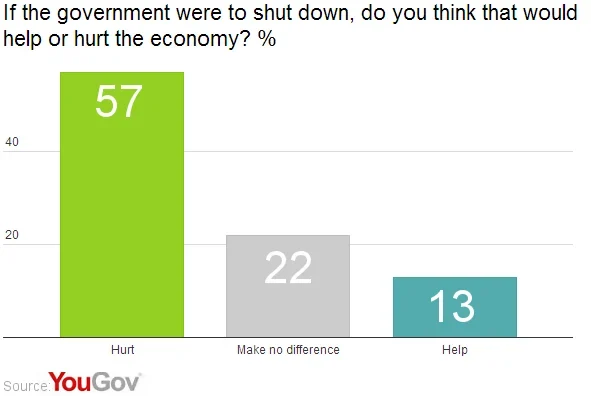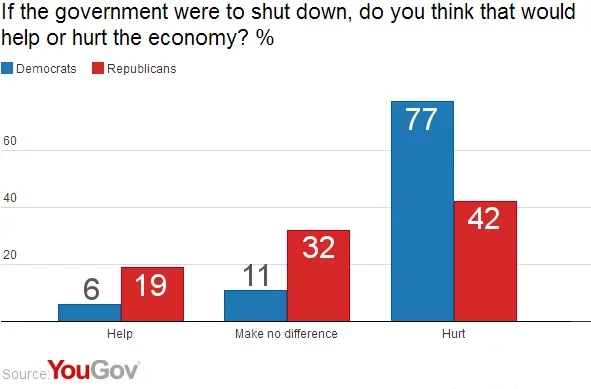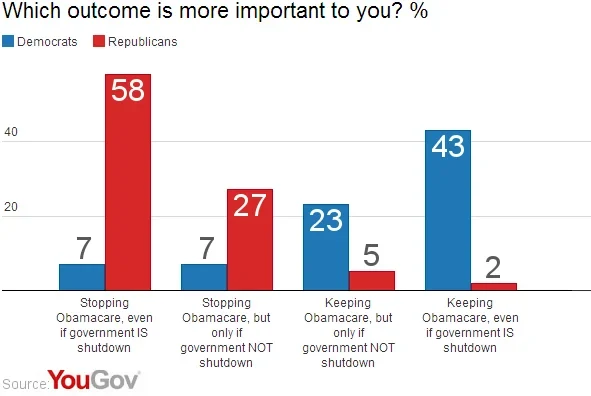Highlighting the country's political polarisation, Americans are divided over both the justification for and the likely impact of the government shutdown
As of midnight last night, for the first time in 17 years, the government of the United States shut down, meaning that until a deal is reached over the nation’s budget an array of ‘non-essential’ government services will be suspended. Congressional Republicans, who hold a majority in the US House of Representatives, have so far refused to pass a bill funding the government that does not also repeal or delay the implementation of President Barack Obama’s signature healthcare reform bill, commonly known as Obamacare, while Congressional Democrats and Obama himself have said they will reject any legislation funding the government that affects Obamacare.
A survey conducted over the weekend by YouGov for the Huffington Post shows that most Americans think the shutdown will hurt the US economy, but even on this there are partisan disagreements.
Overall, 57% of Americans believe that the shutdown will hurt the US economy, compared to only 22% who think it will make no difference.

However while this includes a majority (77%) of Democrats, it includes only a plurality (42%) of Republicans.
Revealingly, a slim majority (51%) of Republicans actually think the shutdown will either make no difference to the U.S. economy (32%) or actually help the economy (19%).

The politics at play are complex, but much of the disagreement over the economic effects of the shutdown and the motivations behind it likely depend on voters’ attitude towards Obamacare, which Congressional Republicans have pushed to the fore of the budget debate. Many Republican members of Congress have argued that the healthcare law would have dire consequences for the U.S. economy if it goes into effect.
Of course the Republicans in Congress are not alone: many answer to conservative constituencies in which voters are widely opposed to the law.
Last weekend a YouGov poll for The Economist showed that 58% of Republican voters held the view that what was most important was stopping Obamacare, even if it meant shutting down the government ‘temporarily’. This view is held by only 7% of Democrats, who are most likely to say they would prefer to keep Obamacare – even if it means the government shuts down.

However an irony unique to the present showdown is that today is also the first day that Americans can begin signing up for healthcare in the insurance marketplaces established by Obamacare. While the shutdown will have impacts reverberating across U.S. government, from the furloughing of some government workers to the closing of the country’s national parks, the implementation of the healthcare law itself is scheduled to go ahead as planned.
Image: Getty






